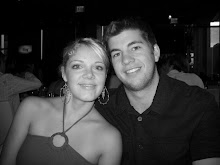 A recent issue of The Economist entitled, "The New Wars of Religion," ran an 18-page special on faith and politics...very good, although the generalizations made about Pentecostalism as the, "least intellectual (and most emotive) religion of all," were a just that, generalizations. Regardless, the article is well-worth the read as it captures very clearly the role and transformation of religion today. Below is a segment discussing the new role of choice in today's religious environment that I found most interesting:
A recent issue of The Economist entitled, "The New Wars of Religion," ran an 18-page special on faith and politics...very good, although the generalizations made about Pentecostalism as the, "least intellectual (and most emotive) religion of all," were a just that, generalizations. Regardless, the article is well-worth the read as it captures very clearly the role and transformation of religion today. Below is a segment discussing the new role of choice in today's religious environment that I found most interesting:
"Choice is the most “modern” thing about contemporary religion. “We made a category mistake,” admits Peter Berger, the Boston sociologist, who was once one of the foremost champions of secularisation but changed his mind in the 1980s. “We thought that the relationship was between modernisation and secularisation. In fact it was between modernisation and pluralism.” Religion is no longer taken for granted or inherited; it is based around adults making a choice, going to a synagogue, temple, church or mosque.
This has a profound affect on public life. The more that people choose their religion, rather than just inherit it, the more likely they are to make a noise about it. Miroslav Volf, director of Yale's Centre for Faith and Culture, says this is showing up in the workplace too: “It used to be that workers hung their religion on a coat rack alongside their coats. At home, their religion mattered. At work, it was idle. That is no longer the case. For many people religion has something to say about all aspects of life, work included.”


